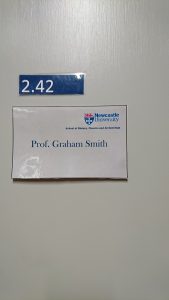Here below is the formal advert. But please go the University jobs website and search: work and After.
Continue readingAdvertising: Our second researcher post
Reply

Here below is the formal advert. But please go the University jobs website and search: work and After.
Continue readingI am now in post as the Unit’s Professor of Oral History and involved in recruiting two research ers. I’ve been shortlisting with the Head of History for the first researcher post. There were 32 applications in total. The overall quality of applicants was exceptionally high and I’m very much looking forward to interviewing those we have shortlisted early next month.
ers. I’ve been shortlisting with the Head of History for the first researcher post. There were 32 applications in total. The overall quality of applicants was exceptionally high and I’m very much looking forward to interviewing those we have shortlisted early next month.
I have also started to make contact with oral historians in the region and reports on these meetings will follow.
Graham Smith, 19 September 2017.